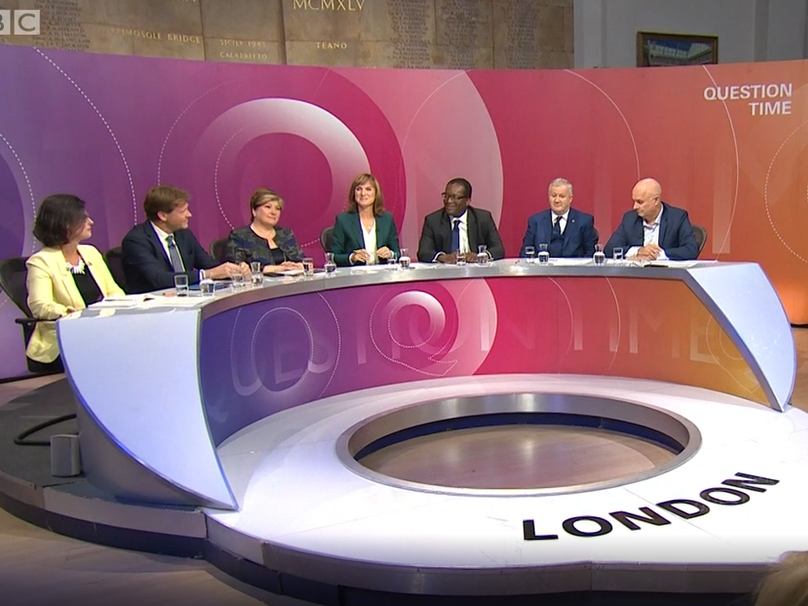
The BBC has defended Question Time host Fiona Bruce from complaints that she allowed Remain-supporting MPs to dominate the panel during a broadcast earlier this month.
A number of viewers complained to the BBC that Bruce had “poorly” chaired the 5 September programme, which was the first to air after the summer parliamentary recess.
Brexit Minister Kwasi Kwarteng, Labour MP Emily Thornberry, Lib Dem Layla Moran, the SNP’s Westminster leader Ian Blackford, Brexit Party chairman Richard Tice and LBC presenter Iain Dale appeared on the episode.
In its response to viewer complaints, published yesterday, the BBC said Bruce is “proving to be a fantastic Question Time host”.
It said she had been “warmly received by audiences and commentators alike and the programme has seen audiences increase since she has been presenting”.
Bruce joined Question Time in January, replacing David Dimbleby when he stepped down after 26 years. Three-quarters of 113 viewers polled by Press Gazette the day after her debut thought that she had “smashed it”.
The BBC said it seeks to allow each panellist to make their argument, but that the nature of a live programme means they can speak over each other.
However, the chairperson “will always try to move the conversation on where needed and give everyone the opportunity to answer the questions posed by the audience,” they said.
The BBC added that Bruce had asked Thornberry to stop speaking when the MP “tried to either interrupt or overrun with her points” so other members of the panel could answer, and noted that the Brexit debate was “particularly intense” that week.
It followed the defeat of Prime Minister Boris Johnson’s motion for an early election as Parliament voted for a bill that would block a no-deal Brexit.
“Many of those appearing feel strongly about the topics being discussed, which can lead to opinions being expressed which can be disagreeable to others, either in their content or the manner in which they are articulated,” the BBC explained in its response to viewers.
“All the panellists were given time and they all had the opportunity to respond to the pre-selected audience questions.”
The BBC also said: “People understandably feel very passionately about the current political climate and sometimes things can get heated, but the programme is more often constructive and civil than confrontational and argumentative.”
Question Time marked its 40th anniversary last night with a highlights reel from its history at the end of the programme.
The presenter was said to have fallen foul of the BBC’s strict impartiality guidelines over her remark about tweets by US President Donald Trump that a number of ethnic minority congresswomen should “go back” to the “totally broken and crime infested places from which they came”.
The National Union of Journalists said the BBC had got it “very wrong”, with journalists reporting “bewilderment” among BBC staff towards the ruling.
Picture: BBC
Email pged@pressgazette.co.uk to point out mistakes, provide story tips or send in a letter for publication on our "Letters Page" blog
